ROAD SAFETY
INITIATIVE
By AACCES
Building on its experience across the African continent, and particularly in West Africa, AACCES has developed a deep understanding of road safety challenges and their impacts. Cultural habits and the complex social and socio-territorial inequalities contribute in numerous ways to road insecurity.
Our strength lies in our ability to translate a global road safety culture into concrete actions, taking into account each country’s unique infrastructure, behaviors, and regulations.
AACCES rigorously analyzes, synthesizes, and adapts the best international and local road safety practices to deliver tailored solutions that are both effective and firmly grounded in the unique specifics of each local context.
As an active focal point in road safety, we connect stakeholders, harmonize strategies, and deploy proven solutions to reduce risks and save lives.
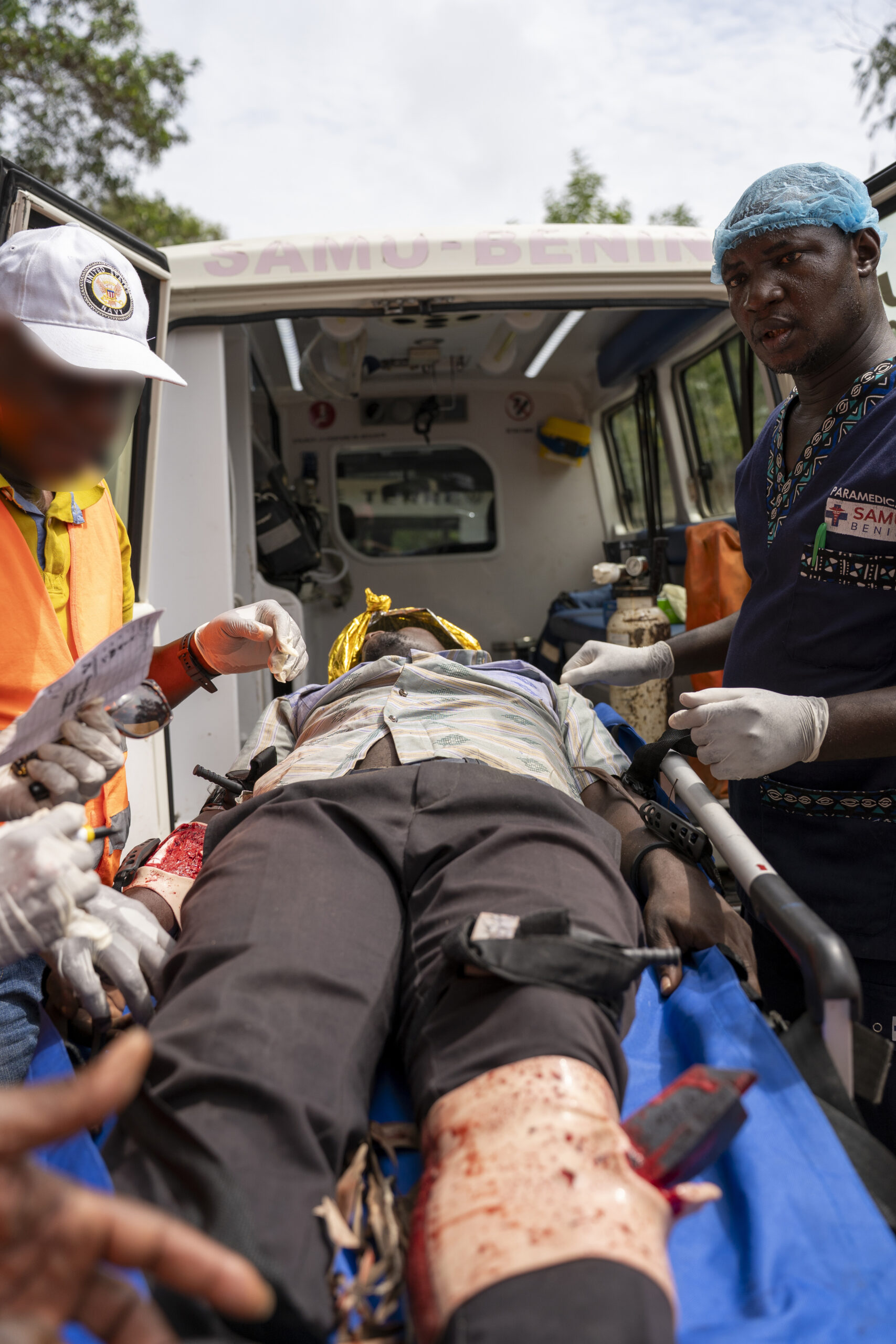
Our vision
Pre-crash
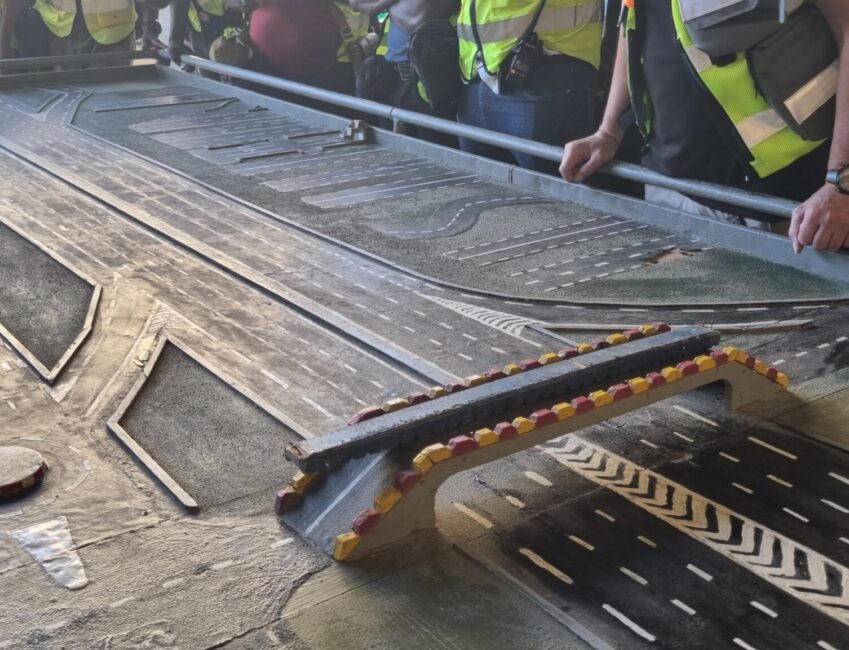
A safer road begins with awareness and accountability from all users. This starts above all with raising awareness among young and future drivers, as well as strengthening the skills of drivers (4-wheel / 2-wheel / heavy vehicles), through specific training programs tailored to their realities.
By educating, informing, and properly training these various actors, we directly reduce risky behaviors and promote the establishment of a safe driving culture. Thanks to our network of community facilitators and local partnerships, we roll out contextualized awareness campaigns and targeted training programs that effectively reach schools, universities, driving schools, transport companies, and all stakeholders involved in road safety.
Crash
As soon as a crash occurs, every second counts to secure the area, alert emergency services, and provide life-saving actions. Yet in many regions, the lack of planning for communication, emergency transport, and equipment delays victim care—precisely when those first minutes are critical.
Our cross-cutting training programs turn drivers (light vehicles, heavy trucks, two-wheelers) and citizens into first responders capable of securing the environment, effectively alerting emergency services, and performing life-saving first aid.
At the same time, we strengthen the technical skills of emergency services, establish appropriate protocols, and raise awareness of best practices in equipment and coordination—thus optimizing every link in the emergency response chain to maximize survival chances and reduce long-term harm.
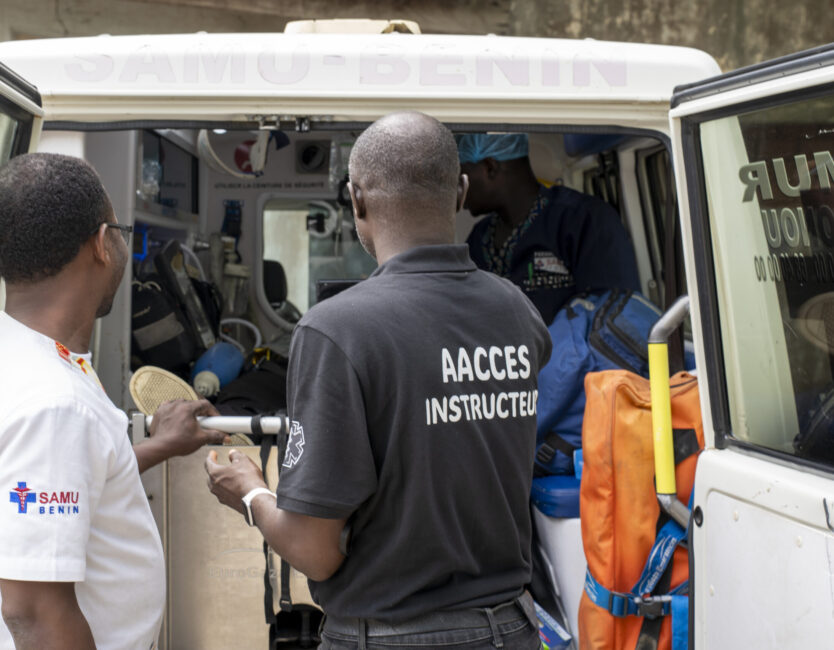
Post-Crash
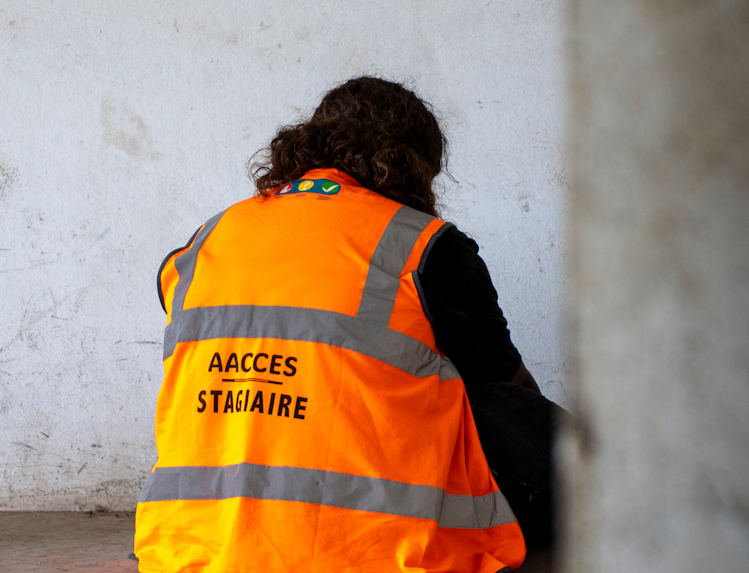
Managing the consequences of an accident doesn’t stop at medical care. We believe that structured support is essential to help victims resume their lives under the best possible conditions.
This involves tailored psychological support, effective social and professional reintegration, and assistance with administrative and legal procedures. Understanding and simplifying interactions with insurance companies and legal bodies allows victims to focus on their recovery without unnecessary burdens. To support means to provide concrete solutions that ensure efficient, appropriate care for every situation.
Our actions
Our Trainings
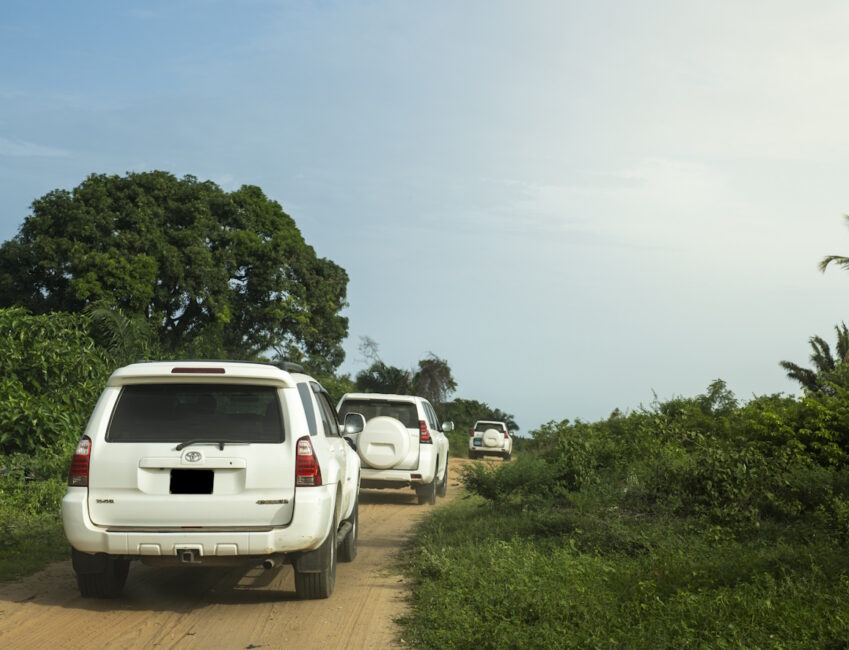
Road Safety Awareness
We organize targeted information sessions aimed at presenting the risks associated with traffic and the appropriate behaviors to adopt.
Safe driving (four and two-wheeled vehicles / heavy trucks / transport vehicles)
We offer specific modules tailored to each type of vehicle, including practical exercises on simulators and in real-life conditions.
First Aid Training – First Responder
This training covers first aid techniques and essential best practices for stabilizing victims.
Post-accident mental health first aid
We raise awareness among responders about the signs of psychological distress and teach them emotional support techniques for victims and their families.
Advisory and support
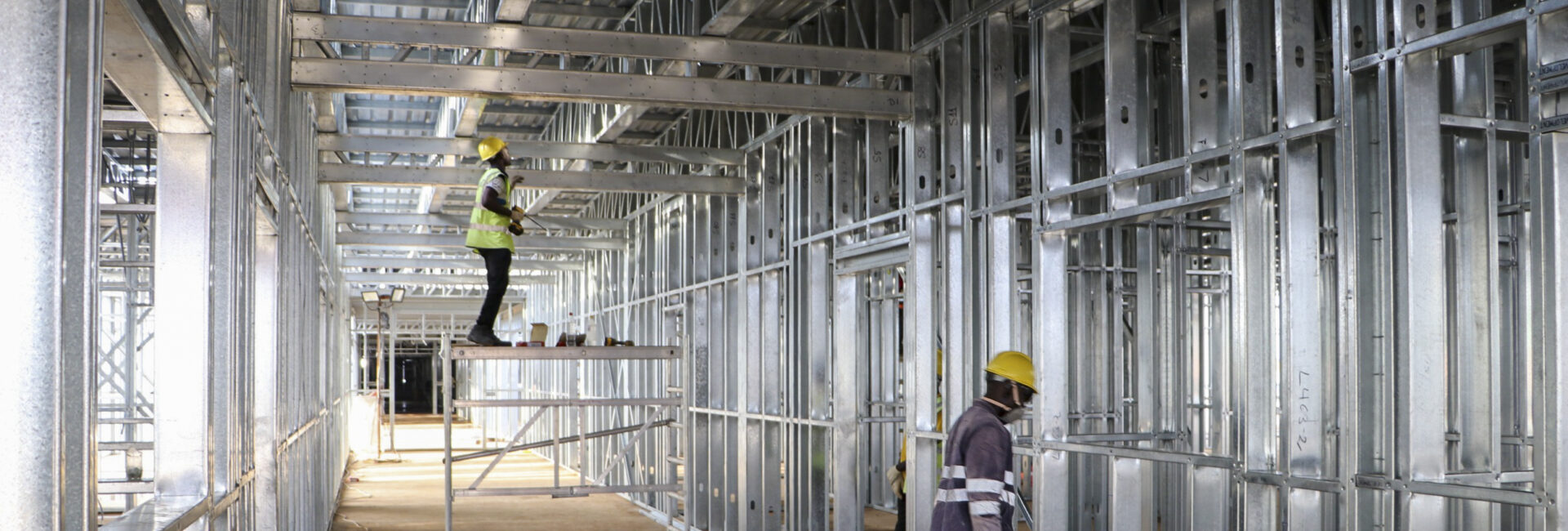
Strategic advisory and institutional support
We support decision-makers in developing their “Road Safety” roadmap and in establishing governance mechanisms to ensure the coherence and effectiveness of their actions.
Improvement of accident response
We optimize emergency response processes by coordinating key stakeholders and supporting the implementation of standardized protocols to reduce response times and improve care conditions.
Victim support
We deploy teams providing psychological support, as well as medical, legal, and social assistance, ensuring comprehensive care for victims.
Awareness-raising through community outreach activities
We lead participatory workshops in local communities to share prevention messages and promote the adoption of life-saving actions.
Monitoring and evaluation of initiatives
We define clear indicators and implement data collection tools to measure impact and continuously adjust programs, while strengthening the capacities of the responsible authorities.
Construction and equipment of health infrastructures
We support the construction and development of customized healthcare infrastructures, define the list of essential equipment, and train local staff in their use and maintenance to ensure long-term sustainability.
